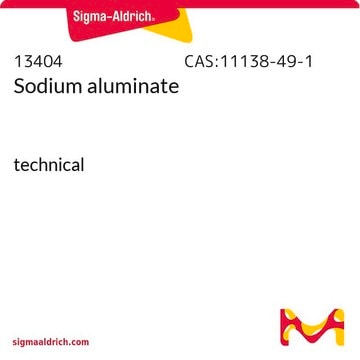288772
Silicic acid
99.9%, 20 μm, purified by refining
Sign Into View Organizational & Contract Pricing
All Photos(3)
About This Item
CAS Number:
EC Number:
MDL number:
UNSPSC Code:
12352301
PubChem Substance ID:
NACRES:
SB.52
Recommended Products
Assay
99.9%
form
powder
purified by
refining
particle size
20 μm
SMILES string
O[Si](O)=O
InChI
1S/H2O3Si/c1-4(2)3/h1-2H
InChI key
IJKVHSBPTUYDLN-UHFFFAOYSA-N
Looking for similar products? Visit Product Comparison Guide
Storage Class Code
11 - Combustible Solids
WGK
WGK 3
Flash Point(F)
Not applicable
Flash Point(C)
Not applicable
Certificates of Analysis (COA)
Search for Certificates of Analysis (COA) by entering the products Lot/Batch Number. Lot and Batch Numbers can be found on a product’s label following the words ‘Lot’ or ‘Batch’.
Already Own This Product?
Find documentation for the products that you have recently purchased in the Document Library.
Customers Also Viewed
Mitra Shabanian et al.
Oral health & preventive dentistry, 10(1), 59-64 (2012-08-22)
To evaluate the changes in the enamel surface microhardness following the application of various suspensions of Crest and Pooneh toothpastes with and without fluoride. Fifty-six enamel blocks of primary incisors were exposed to a pH-cycling regime consisting of demineralisation and
C Saravanan et al.
Current drug delivery, 9(6), 583-587 (2012-03-29)
The bone infections are the most divesting complications confronted by the physicians and patients. The antibiotic loaded bone cements, such as synthetic ceramics and natural ceramics were accepted for bone infections. The currently available bone cements were not accepted due
Tao Luo et al.
Journal of biomedical materials research. Part A, 100(9), 2269-2277 (2012-04-14)
The use of bioactive microspheres as bone filling materials has received much attention due to their ability to fill the bone defects with irregular and complex shapes and sizes. Divalent Mg(2+) modified silicate-based diopside (DIOP: CaMgSi(2)O(6)) and tetravalent Zr(4+) modified
Samantha Davenward et al.
Journal of Alzheimer's disease : JAD, 33(2), 423-430 (2012-09-15)
There has been a plausible link between human exposure to aluminum and Alzheimer's disease for several decades. We contend that the only direct and ethically acceptable experimental test of the 'aluminum hypothesis', which would provide unequivocal data specific to the
Paul Curnow et al.
Biochemistry, 51(18), 3776-3785 (2012-04-26)
The synthesis and manipulation of silicon materials on the nanoscale are core themes in nanotechnology research. Inspiration is increasingly being taken from the natural world because the biological mineralization of silicon results in precisely controlled, complex silica structures with dimensions
Our team of scientists has experience in all areas of research including Life Science, Material Science, Chemical Synthesis, Chromatography, Analytical and many others.
Contact Technical Service













